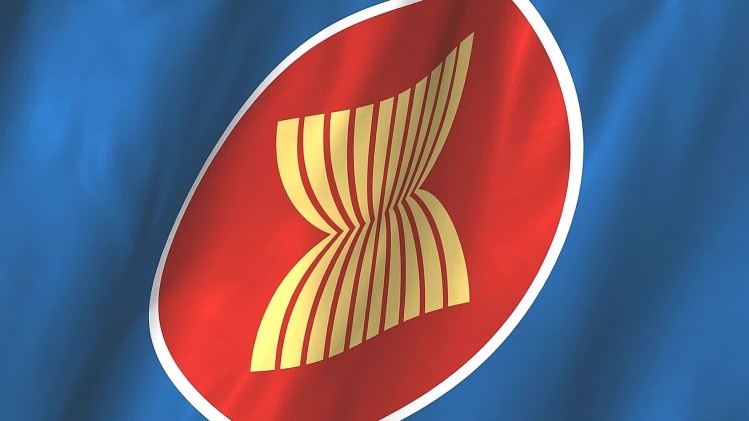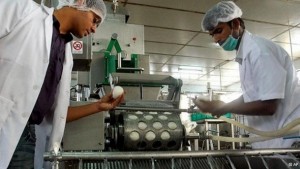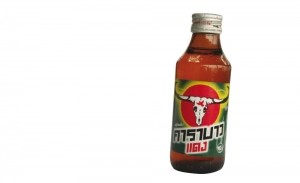Region in focus: Dateline Southeast Asia
Malaysia facing digestive health time bomb

Datuk Dr Muhammad Radzi Abu Hassan, chairman of the newly formed Digestive Health Malaysia (DHM), said the country has to act fast to stem the current explosion of digestive disorders and diseases.
“An increased westernised diet that is low in fibre and nutrient but rich in sugar, additives and chemicals, alters the ecosystem of our gut which impairs its ability function normally.
“Not only is Malaysia experiencing changes in its dietary habits and increasing obesity rates, other factors of modern living like stress, medications, infections or toxins damaging the balance of normal gut function can also impair our ability to tolerate food we normally eat.”
This downward spiral prompted the establishment of DHM. Official figures from last year show that digestive diseases were the fifth principal cause of deaths in hospitals, and one of the principal causes of hospitalisation nationwide. In 2007, digestive health ranked seventh.
Radzi said digestive health had a big impact on wellness and although Malaysians today were familiar with colon cancer, they had little knowledge of other diseases of the digestive system like irritable bowel syndrome, diverticulitis, acid reflux and Crohn’s disease, which can be chronic, difficult to diagnose and treat.
Indonesia growing its attraction for Asian manufacturers
As Asian businesses brace for the 10 Asean nations to form an economic bloc by the end of this year, Indonesia has become increasingly popular for investment.
Indonesia, along with Myanmar, will be the most preferred regional destination for manufacturing investment by multinational companies over the next five years as companies race to take advantage of the integrated market, according to a Baker & McKenzie report early this year.
A large number of Asian firms have already expressed interest in expanding their business or setting up new facilities in Southeast Asia’s largest economy, partly to tap into the lucrative benefits promised by deeper economic integration in a region with a population of 620m.
A number of businesses in Japan, South Korea, Taiwan and China have committed to pour around US$7.9bn in investment into Indonesia, according to Indonesia’s Investment Coordinating Board.
A report by professional services company TMF Group last week said the Asean Economic Community should provide Southeast Asia with an opportunity to replace China in providing multinational companies with a total value chain for their business.
“Challenges remain in the elimination of non-tariff barriers such as a single channel for imports, price control measures, natural resource subsidies and preferential treatment of state-owned enterprises,” said Paolo Tavolato, TMF’s regional head.
“Although the withdrawal of such barriers might inflict short-term pain, it would eventually be beneficial, as competition will push these industries to move up the value chain and increase productivity.”
Thai Red Bull looks on at Carabao’s new pretender
The country that first introduced Red Bull is now seeing a new order in the energy drinks market with the originator of the mass-market caffeine- and taurine-infused brew now playing catch-up.
The market leader is no longer Red Bull, which originated in Thailand, but unlisted Osotspa’s M150. In the past decade another local rival has stolen a march on Red Bull to become No. 2: relative newcomer Carabao Dang, named after a Thai music band led by popular folk singer Aed Carabao, who serves as the drink’s ambassador.
It is sold in glass bottles featuring a buffalo skull logo. Parent Carabao Group has seen shares rise 45% since it went public in November.
Infused with vitamin B12, Carabao Dang became an instant hit, and now occupies one-quarter of Thailand’s overall energy drinks market with revenues of US$225m. It has begun to export overseas to markets like Cambodia, Myanmar and Afghanistan.
Changing tastes attract AB InBev to Vietnam
The world’s biggest brewer is preparing a brewery in Vietnam’s Binh Duong province.
AB InBev will open the facility, its first in Southeast Asia, on May 21 to supply the region’s biggest beer-drinking market.
Vietnam has recently been enjoying 13% average annual growth in ints domestic beer industry. Total beer consumption reached 3bn litres in 2013, then grew by a further 8% last year.
The brewery illustrates AB InBev’s ambition to capitalise on the market, the company’s Vietnam chief said ahead of the launch.
“Vietnam is an incredibly vibrant and dynamic market to be working in, and we are absolutely thrilled to be opening a new state-of-the-art brewery here,” said Ricardo Vasques.
“We will be well positioned to service both the local market… as well as explore the potential of other countries within the region. In this regard, Vietnam is central to our operations in Southeast Asia.”
Vietnam has been welcoming an increasing number of new brands as consumer tastes become more international.
“There is absolutely no doubt that, in addition to growing in volume, the beer market in Vietnam is evolving in character as consumers seek out new and more premium experiences,” said Vasques.
“It’s clear that the time is ideal for us to broaden our range in Vietnam, giving beer lovers the opportunity to enjoy beverages from around the world, whether they’re at their local bar or club, or they’ve picked up a few drinks from the supermarket to take home.”
Crown expands can production in Thailand
Philadelphia-based can and packaging major Crown Holdings has opened a second two-piece aluminium beverage can production line in Nong Khae, Thailand to begin producing 250ml slim cans in September.
As Thailand’s soft-drinks market grows, 250ml “slim” cans are becoming increasingly popular with Thai consumers, who prefer smaller packaging for more affordable products.
“We have found that there is growing demand and increasing preference for beverages packaged in aluminium cans in Thailand,” said Jozef Salaerts, president of Crown Asia-Pacific, adding that the plant would also support international customers.
With the launch of the new production line, Crown’s combined facilities will support 250ml slim, 330ml sleek, 330ml standard, and 500ml regular aluminium cans. Crown also operates four food packaging plants in Thailand.
Singapore joins FAO to strengthen food security in SE Asia
The Food and Agriculture Organisation of the United Nations and Singapore have inked a deal to improve food and nutrition security in Southeast Asia, with a special focus on food safety.
The collaboration will look at improving the health and safety of food in addition to cutting food losses and waste, making trade and agriculture more sustainable and building resilience to animal and plant-related threats.
In addition to exchanging and deploying professionals in the field, the FAO and Singapore will also work together on developing food policies, creating agricultural research programmes and training material as well as disseminating new technologies.











